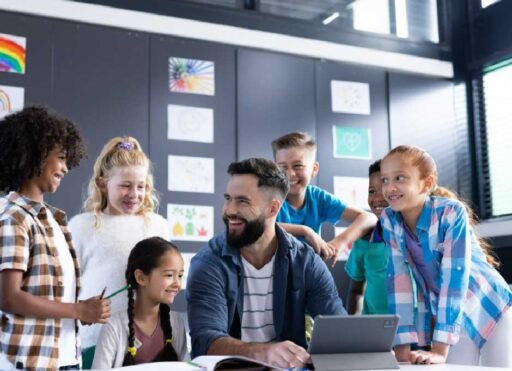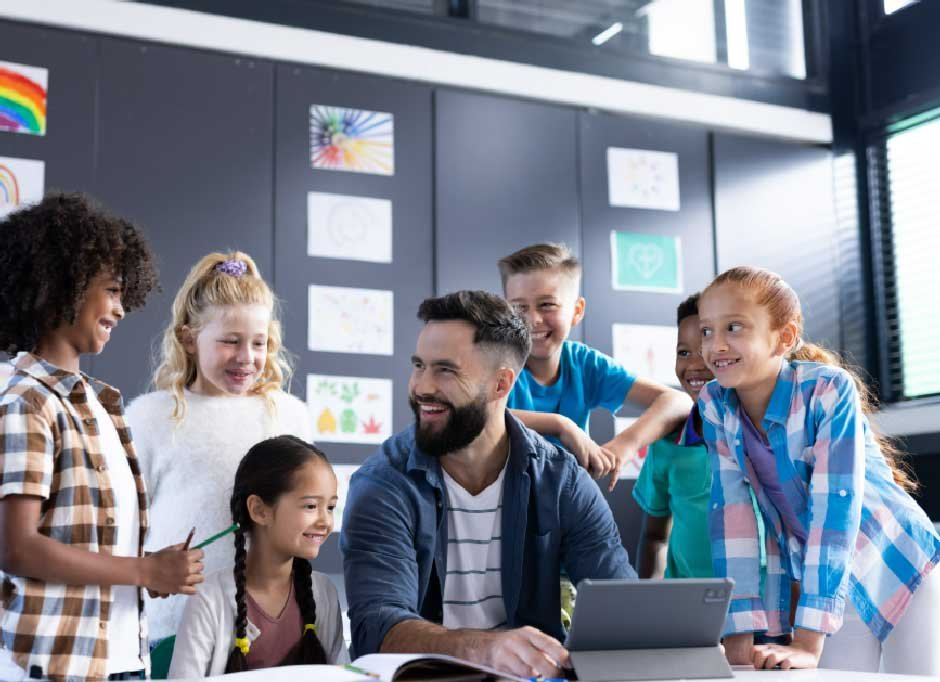What Defines an Innovative School Culture?
Innovative schools foster a foundational mindset where students feel empowered to propose improvements, teachers take risks, and administrators view challenges as opportunities for refinement. This approach encourages open dialogue, feedback, and experimentation, fostering real change and celebrating experimentation.
An innovative school culture goes far beyond trendy buzzwords, educational fads, or simply introducing the latest gadgets. It is built on a persistent atmosphere of curiosity, creativity, and the willingness to challenge the status quo. Educators committed to fostering this kind of environment often pursue advanced learning paths—such as an educational specialist degree online—to gain proven strategies for nurturing innovation, flexibility, and growth within their schools. Such a culture actively welcomes new ideas, experiments, and methods that drive student engagement and well-being.
Role of Educational Leaders in Driving Innovation
School leaders play a crucial role in fostering an environment conducive to innovation. They set expectations for creativity, risk-taking, and continuous learning. They communicate that innovation is a living value by modeling curiosity, attending professional development, and actively participating in school initiatives. Effective leadership involves being approachable, receptive to ideas, and involving educators and students in designing new programs. This collaborative approach energizes staff and ensures all stakeholders are part of the school’s future.
Cultivating Collaboration and Shared Vision
Sustainable innovation thrives when teams work together and share a mission. Successful schools encourage educators to step outside their classrooms, creating space for joint lesson planning, interdisciplinary projects, and professional learning communities. Collaboration drives continuous refinement of best practices. Active participation in shaping the school’s direction fosters commitment and ownership, enabling progress. This unity helps navigate challenges and celebrates successes as a team. Open communication and frequent revisiting of shared goals ensure a dynamic, inclusive, and future-ready school culture.
Empowering Teachers for Effective Change
Teachers play a crucial role in innovation and cultural transformation in schools. Trust, autonomy, and professional development opportunities lead to profound results. Schools that prioritize teacher leadership, facilitate pilot programs, and offer peer mentorship foster a virtuous learning circle. Recognition through awards or celebrations encourages teachers to explore inventive approaches, promoting a more innovative and productive learning environment.
Integrating Technology and Modern Approaches
Technology should enhance pedagogy, not replace it. Best schools use digital tools like virtual collaboration, data-driven assessments, and multimedia learning to personalize instruction. However, meaningful integration requires ongoing evaluation to ensure it fosters critical thinking and creativity. Innovative schools focus on outcomes like student engagement, improved feedback, and deeper learning, supporting equity and excellence in education.
Measuring Innovation and Student Outcomes
Innovation assessment in schools involves a combination of quantitative and qualitative data, including surveys, project-based assessments, and interviews. This process helps identify patterns like increased collaboration, improved resilience, and increased student confidence, indicating areas for improvement. Sharing insights with staff encourages collective responsibility and celebrates progress towards lasting school improvement, fostering a culture of innovation and improvement.
Overcoming Barriers to Cultural Growth
Innovation can be challenging due to fear of failure, time constraints, and budget constraints. To overcome these challenges, start with modest changes and gradually build confidence. Schools should normalize open discussion about setbacks, fostering a culture of learning from failure. This encourages individuals to voice concerns and share lessons, transforming obstacles into opportunities for growth. Coaching, professional development, and collaboration time are essential for building resilience and adaptability.





